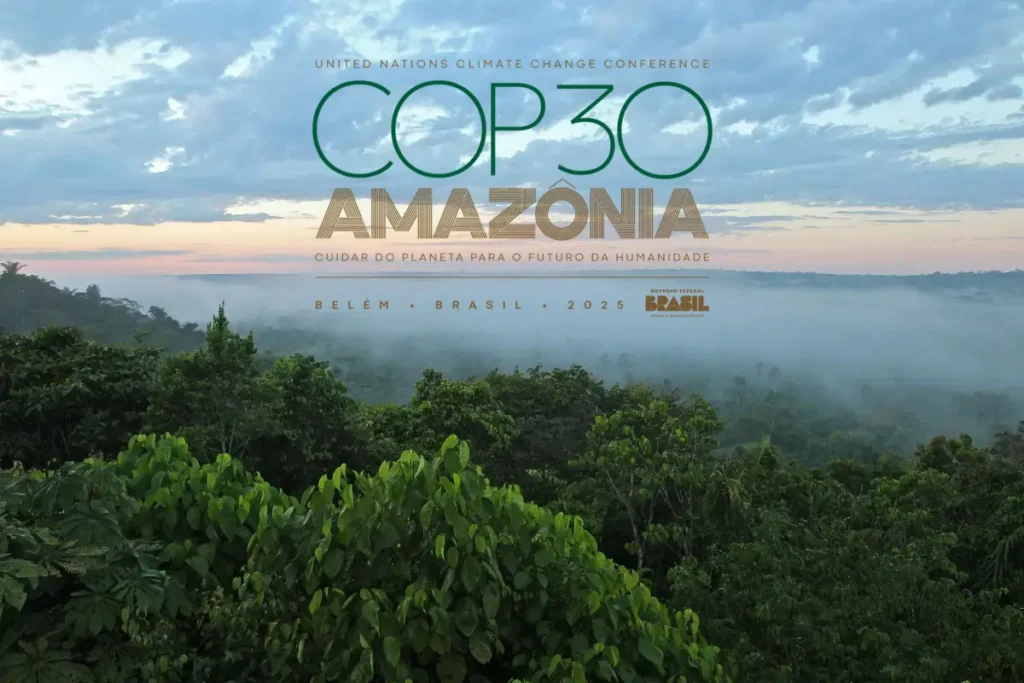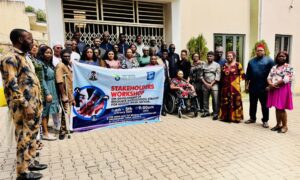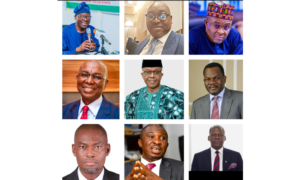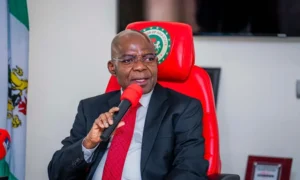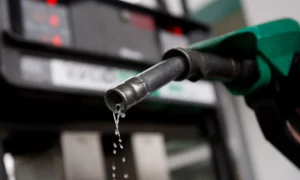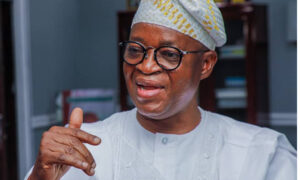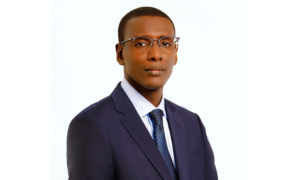BY KAYODE ADEBIYI
Ahead of the 2025 UN Climate Change Conference, or Conference of the Parties (COP30), the Executive Secretary of the UN Framework Convention on Climate Change, Simon Stiell, is rallying stakeholders for action.
Stiell has urged countries to deliver a rapid surge in climate finance to address the impact of climate change.
COP30 will be held in Belém, Brazil, between Nov. 10 and Nov. 21.
Stiell warned that developing nations remained dangerously short of the resources needed to withstand worsening storms, floods, and droughts.
The UN climate chief, therefore, called for finance to “flow right now”, as delegates prepare for what is being referred to as a crunch summit for turning promises into action.
“Whether or not countries need to be prepared to cope with a changing, more unpredictable climate is hardly in question…
“Extreme weather events such as devastating wildfires, catastrophic droughts, and apocalyptic floods are making life increasingly difficult in all parts of the world.
“There are plenty of examples of effective measures that countries can take to adapt to this new normal, ranging from high sea walls to cyclone warning systems, floating homes and planting drought-tolerant crops,” he said.
In a new report detailing the progress countries are making on their national climate adoption plans (NAPs), the UN said persistent funding gaps risk derailing plans that many are attempting to implement.
Stiell said at the launch of the report in Brazil that the climate crisis is destroying lives and livelihoods in every region of the world, especially in the most vulnerable countries.
According to him, adaptation is not optional; it is essential, as it will not only protect lives but also help empower communities and countries to thrive.
The question on the lips of some climate activists is: How do vulnerable countries and regions that are the least polluters adapt when rich polluting countries have refused to fund climate action?
The Paris Agreement (also known as the Paris Accord), a legally binding international treaty on climate change adopted in 2015, was signed by 195 countries to address climate change mitigation, adaptation, and finance.
Its core goal is to hold the increase in the global average temperature to well below 2°C above pre-industrial levels and make efforts to limit the temperature increase to 1.5°C above pre-industrial levels.
However, to achieve this, it was agreed that greenhouse gas emissions must peak before 2025 at the latest and decline by 43 per cent by 2030.
Unfortunately, experts and activists warn that through a combination of poor commitment, a lack of collaboration, and inequality in terms of resources, the world is at risk of missing that crucial target.
They say the impact of climate change on developing countries, especially in Africa, is an indication that the support, funding, and awareness required for adaptation needs have been inadequate.
Yet, those three components – mitigation, adaptation and finance – seem to be exclusively within the reach of wealthy nations who, ironically, are the biggest polluters.
In 2023, Kenya hosted the first Africa Climate Summit (ACS), where President William Ruto appealed for a change in strategy in the continent’s pursuit of a sustainable solution to its climate crisis.
“For a very long time, we have looked at this as a problem.
It is time we flipped it and looked at it from the other side… “Climate action is not a Global North issue or a Global South issue. It is our collective challenge, and it affects all of us.
“We need to come together to find common, global solutions,” he said.
The summit culminated in an eleven-point call to action, now known as the Nairobi Declaration, including the operationalisation of the Loss and Damage fund as agreed at COP27.
It also called for the resolution of a measurable Global Goal on Adaptation (GGA) with indicators and targets to enable the assessment of progress against the negative impacts of climate change.
However, critics said the summit overly focused on market-driven financing mechanisms such as carbon credits, compensations, and debt forgiveness.
They said some of the points raised in the Nairobi Declaration were mere echoes of demands that developed countries have either turned a blind eye to or refused to fulfil previous commitments on.
They cited the demand for the operationalisation of the Loss and Damage fund as agreed at COP27 and the resolution of a measurable Global Goal on Adaptation (GGA).
The GGA was established at COP26 in Glasgow to enhance resilience and assist the most vulnerable communities.
However, developed countries have failed woefully to fulfil their financial commitments to vulnerable and worst-hit regions, either through the GGA or the Loss and Damage fund, or any such climate financing instrument.
In response to some of the challenges, French President Emmanuel Macron convened a Summit for a New Global Financing Pact in 2023.
The summit was aimed at finding a roadmap for easing the debt burdens of low-income countries while freeing up more funds for climate financing.
Macron presented four pillars that should underpin the new global financial pact:
“First, no country should have to choose between fighting poverty and protecting the planet.
“Second, each country must follow its own path because there is no single model; third, we need to take on a public funding shock.
“And fourth, we need more from the private sector to mobilise a lot of money.”
Climate experts are worried that things have changed since Macron and other stakeholders made that commitment, as the world now faces tense geopolitical confrontations.
Copernicus Climate Change Service (C3S) confirmed 2024 to be the warmest year on record globally, and the first calendar year that the average global temperature exceeded 1.5°C above its pre-industrial level.
Some experts are already painting a pessimistic picture of COP30; saying optimism has been dampened by the rhetoric of some world leaders, especially U.S. President Donald Trump.
Jennifer Bansard of the International Institute for Sustainable Development (IISD) raised concerns. “The multilateral diplomatic scene has been more difficult than ever in recent years.
“We also have a lot of logistical constraints for COP 30, with some delegations not sending anyone to Belém and others knowing they’re going to have reduced delegation sizes,’’ she said.
At COP29 in Baku, Azerbaijan, parties agreed to a new collective quantified goal (NCQG) on climate finance of 300 billion dollars annually to support climate action in developing countries.
Commended as a step forward compared to the previous goal of 100 billion dollars, climate activists say the NCQG still falls short of what is required to tackle climate change.
They say climate justice recognises that climate change disproportionately affects marginalised communities, who are the least responsible for causing it.
They call for solutions that address these inequities by focusing on a fair and just distribution of climate action’s burdens and benefits, with vulnerable populations at the centre of decision-making.
According to the UN, fossil fuels (coal, oil, and gas) are responsible for nearly 90 per cent of global carbon dioxide emissions. Unfortunately, they still dominate global energy production.
Yet, a recent report by IRENA, in collaboration with the African Development Bank (AfDB), indicted rich nations when it comes to just and inclusive transition to clean energy.
The report showed that Africa has been significantly left out of the energy transition, as only two per cent of global investments in renewable energy in the last two decades were made in Africa.
Some climate activists, therefore, stress that, if COP30 does not move from commitment to action 10 years after the Paris Accord, then vulnerable countries should reconsider their participation in the annual conference.


